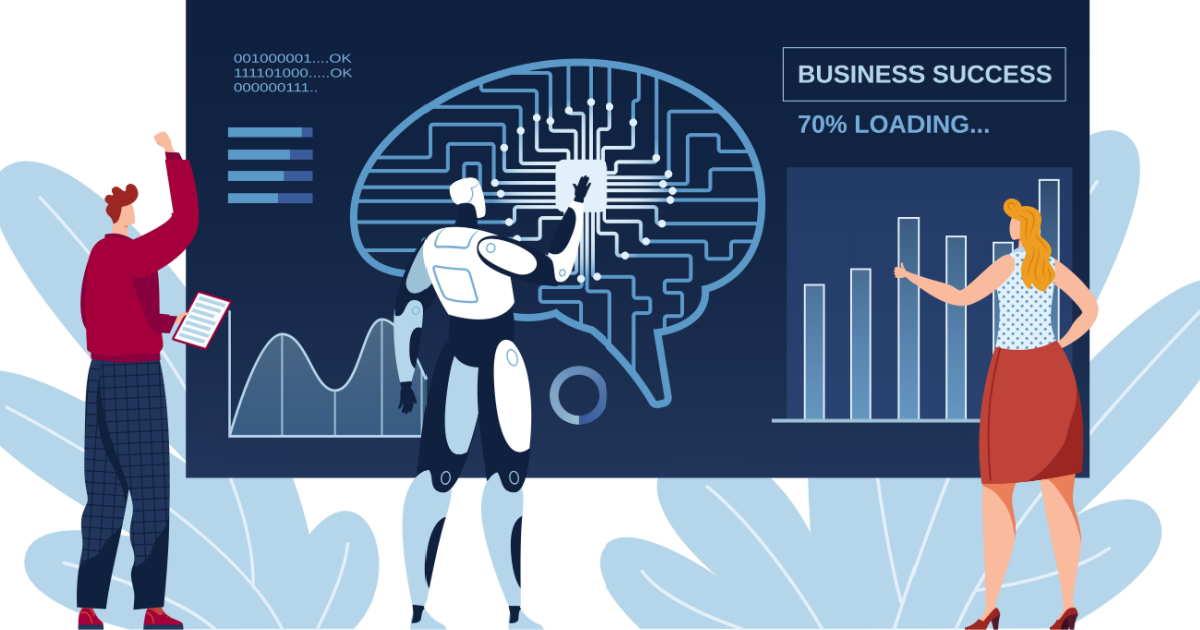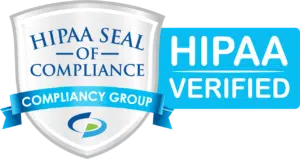Unveiling the Power of AI: Transforming Digital Marketing for Senior Home Care Agencies
How new and developing AI tools will change the way home care marketers do their jobs

The business case for using AI has been made and leaders are investing: 85% of corporate executives say that AI will enable them to achieve or keep a competitive advantage.
AI, or artificial intelligence, is the ability of a machine or computer to do things only a human would otherwise be able to do. The release of ChatGPT has launched AI into the mainstream, and practitioners in every industry are finding creative applications that make their jobs easier. AI currently represents a $27.4 billion market, and in five years, could be worth as much as $107.4 billion.
AI takes many forms, but it’s generative that’s made the most waves recently. Generative AI is artificial intelligence that creates information in response to a prompt. For instance, you might ask an engine like ChatGPT, how do I know when it’s time for home care? and it will spit out some answers, like this one:
Difficulty with Activities of Daily Living (ADLs): If the person is struggling with routine tasks such as bathing, dressing, toileting, grooming, or meal preparation, it may be time to consider home care. Difficulty with mobility and frequent falls can also be concerning.
AI can save marketers time and money, inspire creativity, and better anticipate client needs.
How is AI used in marketing?
There are dozens of applications for AI marketing strategy, and creative marketers are finding new ones every day. Here are a few of our favorites.
- Lead generation. AI tools can ingest your customer data, analyze it, and make recommendations for similar profiles you can target—all of this done in seconds or minutes.
- Data analytics. Use machine learning to mine rich information about your marketing campaigns and uncover new ways of understanding past performance—and forecasting future performance with predictive analytics.
- Content generation. Ask a generative AI tool a question like “give me ideas for senior home care marketing ideas.” Easy as that. You’ll need to riff on the information it returns, but it’s a great jumping-off place. There are even programs, like Ghostwryter, that will create SEO-ready posts for your site too.
- Sentiment analysis. Double-check your creative work with sentiment analysis, sometimes called emotion AI, which attaches an emotion or feeling label to text, images, audio, or video. For example, you might run a sentiment analysis on a new ad campaign and learn that one of the emotions it may elicit is worry—and you’ll know you still have work to do. This is often made possible by NLP, or natural language processing, which is the use of a computer to understand human language and meaning.
- A brainstorming engine. Feeling stuck? Get new ideas for digital marketing campaigns, ad formats, and client personas. Raise questions and follow interesting new threads.
- Digital media buying. Programmatic media buying isn’t new, but powering it with AI tools is, which can improve accuracy, quickly detect fraud, and make ad spend more efficient.
- Chatbots. You may already be using AI on your home care site in the form of chatbots. Visitors who come to your website at any time of day can ask questions about your agency and get an immediate answer. Chatbots can even collect their contact information so you can follow up later.
- A/B testing. AI marketing tools like abtesting.ai can quickly and automatically run A/B ad tests. It just requires a little set-up on your end, and it will do the rest and tell you which image, text, or colors work best.
5 warnings for AI marketing
Before you scoop up every AI tool in sight to power your home care marketing campaigns, pump the brakes and consider these caveats.
Client concerns
Mainstream AI use is still so new, many clients will understandably be hesitant about its use by your agency. They may want to know what happens to their personal data, whether that data is being sold, and if it might affect decisions about their care.
It’s your job to do a thorough vetting of the AI tools and vendors you use and to do your homework about when and how it can be safely and ethically applied, then you’ll have to make a plan to educate and reassure your clients.
Regulations
Though AI feels like an unregulated frontier at the moment—and in many ways it is—laws are coming. Already, in New York City, employers are required to submit to a third-party audit of any AI tools they use in hiring, firing, and promotion decisions. And in Europe, the EU has proposed extensive regulations on such tools.
Experts predict that more laws are on the way: the Biden administration identified principles that should guide the design and use of AI technology, and official laws may not be far behind.
Data quality
AI tools produce new results and information after being trained on existing information. This means that the results it produces are only as good as the data it learned from. For instance, if you ask a generative program for marketing messages that resonate with seniors, but it’s been trained with information from campaigns targeted at the 25–34 demographic, the results will be lackluster.
It’s not foolproof
AI marketing is not without its flaws. Despite how remarkable the latest developments in artificial intelligence are, they are still complicated. For instance, the creators of ChatGPT warn users that it can return factually incorrect information, and results are often filled with typos and clunky wording.
AI in marketing can border on plagiarism
The jury is still out on whether using AI to create entire blog posts is plagiarism—after all, you didn’t write it. In the classroom, teachers do consider the practice plagiaristic, but in business, it’s ethically dubious. If you do rely on generative AI to produce entire bodies of text (even if you fact-check and proofread), it’s best practice to label it as such.
AI doesn’t work without people
The things that can be accomplished with AI are spectacular, and they will only continue to amaze as the technology is developed, but it does not and cannot replace humans. There will always be a certain element that cannot be replicated by any machine, so home care marketers should beware of using AI for AI’s sake. Relying on chatbots for every sliver of customer experience will not produce better results, no A/B test is perfect, and data analysis still deserves a gut-check.
Similarly, avoid overreliance on AI tools, which can stunt team creativity and innovation and turn tech into a crutch. As Stuart Feil writes for Ad Week, “AI can improve ad targeting, but what about the message? Don’t expect technology to come up with an award-winning campaign just yet. It is, however, likely to be powering the creative brief that drives the program.”
Boost your home care marketing and grow your agency
Home Care Marketing Pros offers a number of digital marketing solutions that aim to help you grow your agency. Find out more about what we can do, with or without AI, by booking a Discovery Call with us!







